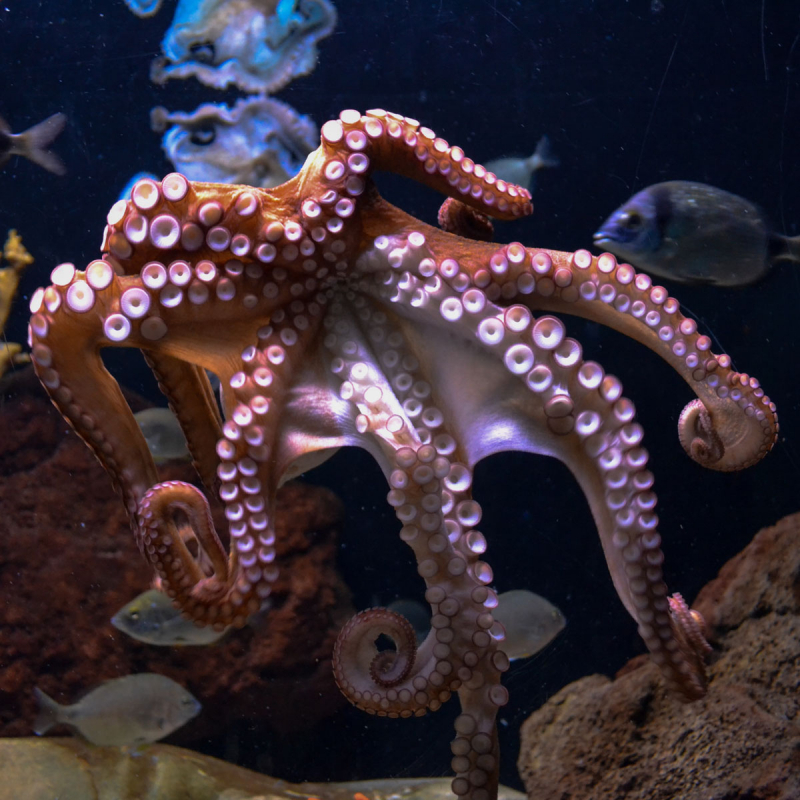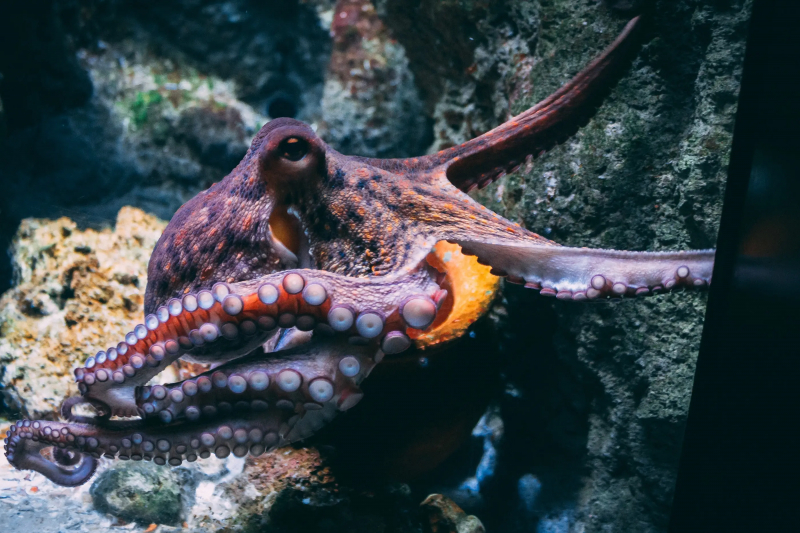Octopuses
One of the rarest and most unexpected predators of seagulls is the octopus. On a few rare occasions, beachgoers have seen an octopus assault and consume a seagull. Octopuses are adaptable animals with intricately designed bodies that utilize their tentacles to seek, squeeze, and restrict their food.
Some octopuses reside in the intertidal zone while others are found at the bottom of the ocean, including coral reefs, pelagic seas, and the seafloor. Most species are short-lived, develop swiftly, and reach maturity early. In the majority of species, the female lays fertilized eggs in a den and tends to them until they hatch, at which point she too passes away. The male, meanwhile, uses a specially modified arm to deliver a bundle of sperm directly into the female's mantle cavity, at which point he becomes senescent and dies.
Octopuses are more likely to assault a seagull on the beaches since they can walk on land as well. And although seagulls take off as soon as they are alerted to the presence of a predator nearby, there are instances when they are unable to do so. It is exciting to see an octopus grab a seagull that is trying to fly using its sensory tentacles.
Another remarkable trait of octopuses is their ability to blend in with their environment. They are capable of squashing themselves. In other words, a big octopus weighing 100 pounds may simply squeeze through a little hole in the ground. They have an edge over seagulls who can fly because of this. Once established, the octopus may quickly capture seagulls that are present on land.











